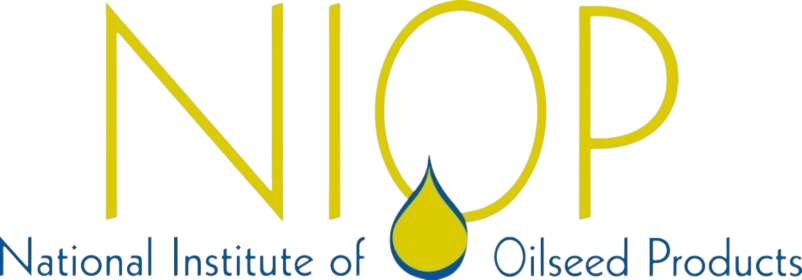NIOP Tackles Food Fraud
NIOP TACKLES FOOD FRAUD
Food fraud has been an insidious and growing problem in our industry for many years. We’ve listened to the frustration of several of our members who have been negatively impacted by the practice of adulterating oils or short-weighting products along the supply chain. You’ve all heard the phrase, “You get what you pay for,” but when it comes to food fraud, you don’t.
The FDA refers to food fraud as “Economically Motivated Adulteration” and it is estimated that the global good industry loses $10-15 billion per year by this practice, though other experts report the number is closer to $40 billion. As a trusted organization dedicated to supporting companies engaged in the buying, selling, processing, shipping, storage, and use of vegetable oils and raw materials, NIOP has chosen to actively stand against food fraud.
NIOP'S PRODUCT INTEGRITY COMMITTEE
In 2022, NIOP formed a Product Integrity Committee to take a deeper look at this problem, collect data from our member companies, and educate our local, state and federal leaders responsible for overseeing the health, safety, and labeling of packaged products on why this critical issue must be addressed. We have also begun quality testing oils shipments at many of our members’ facilities. The results will give us additional data on how food fraud affects our members.

HELP US STOP THE SPREAD OF FOOD FRAUD
Food fraud is the act of purposely altering, misrepresenting, mislabeling, substituting, or tampering with any food product at any point along the supply chain.



- Lower cost oils blended into a product at the expense of customers
- Increases fraudsters’ profit margin
- Compromises the product’s integrity
- Lack of enforcement or regulation allows practice to continue
- Finished goods containing less product than the stated weight on the label
- Profits increased at the expense of customers
- End users’ not having time or proper equipment to check, enables fraud to continue
- Compromises the product’s integrity
- Legal action / lawsuits
- Company reputation tarnished
- Grocery Manufacturers Association estimates food fraud costs the global food industry $10-15 billion per year, though other estimates state $40 billion
NIOP AS A THOUGHT LEADER AGAINST FOOD FRAUD
For more than 80 years, NIOP has been a trusted leader for those engaged in the buying, selling, processing, shipping, storage and use of vegetable oils and raw materials. Today, over 165 members in 15 countries trust NIOP to be their voice. NIOP is committed to being a catalyst for positive change in the oilseed product industry and uniting its international members under the shared goal of supporting the fair, safe, and efficient production of oilseed products from seed to shelf.
We are extremely concerned about the growing problem that food fraud poses for our industry. It impacts consumers, restaurants and distributors and costs our members millions of dollars a year in sales. Unfortunately, this issue has not received significant attention from governing bodies with the power to enforce existing regulations or implement new policies.
In response, we have elected to become a one-stop resource offering the latest news and information on food fraud, and to help our members advocate for meaningful policy changes regarding protecting the integrity of weight and ingredients in our packaged products nationwide. NIOP is taking a firm stance against food fraud and is committed to using the full array of tools and talent at our disposal to ensure that a resolution is reached. We know a problem this insidious will take significant time and effort to address sufficiently, and, as always, we will continue to support the financial and ethical health of our members along the way. If we let food fraud win, everyone in our industry ends up losing.
FREQUENTLY ASKED QUESTIONS
What is Food Fraud and why should we care about it?
What is Food Fraud and why should we care about it?
How does this impact our membership?
How does this impact our membership?
Aside from the companies themselves, who else is impacted by Food Fraud?
Aside from the companies themselves, who else is impacted by Food Fraud?
Why is this important to us?
Why is this important to us?
Why do we need to stop the cycle of Food Fraud?
Why do we need to stop the cycle of Food Fraud?
FOOD FRAUD PREVENTION EXPERT - KAREN CONSTABLE
Led by principal, Karen Constable, Food Fraud Advisors helps food businesses protect their brands from food fraud. Since 2015, they have helped thousands of food, beverage and supplements businesses in more than 60 countries with their tools, templates, and trainings
The Food Fraud Advisors website houses a wealth of information on food fraud for both consumers as well as food industry professionals.
Their resources for consumers include:
– A survey that indicates if you have experienced food fraud
– Who to contact if you have been a victim of food fraud
Their resources for food industry professionals include:
– How to do a vulnerability assessment for food fraud
– A fast and free online training for an Introduction to Food Fraud and other training courses in food fraud prevention
And MORE!
Karen's Newsletter - The Rotten Apple
The Rotten Apple is for food professionals, policy-makers, and purveyors who want the big picture on food safety, food authenticity, and sustainable supply chains. The Rotten Apple shares emerging issues in food safety and food fraud, the current state of food systems, case reports and how-to's, food fraud incidents around the globe from the last week, and more!

Karen's Recent Op-ed
"Opinion: It's Time to Stop Underestimating the Scope of Food Fraud"
NEWS ARTICLES RELATING TO FOOD FRAUD

Beth Westemeyer Joins the VEOS Brokers Team
Today, Mark Hingiss, Founder and Co-Owner of VEOS, shared the following: “I am delighted to announce the newest addition to our team, Beth Westemeyer, who has joined VEOS Brokers as
FDA Liberates French Dressing From 72-year-old Ingredient Mandates
The FDA recently deregulated French dressing ingredient standards – could this leave it open to fraud? The Association for Dressings and Sauces argued that the standards only curbed innovation. Click
Controversial UC Davis Report
This widely referenced report likely published false information about the percentage of fraudulent olive oils -the FDA found that 98% of EVOOs on market were not fraudulent. Click here to
How to Spot Rancid Oils/Introducing Brightland
Brightland is dedicated to producing legitimate oils (although this article does say that 70% of EVOOs on the market are fake, which has been contested – see below) Click here
Brands Affected by Olive Oil Fraud April 2022
Investigators in Spain have uncovered a saffron fraud operation that used ingredients from China. Click here to read more.
Types of Olive Oil Fraud – in EU and outside of EU
“Between September 2016 and December 2019, the JRC recorded 32 cases of fraud in the global olive oil industry. Twenty of the 32 cases occurred in Europe. The most common
CNBC Interview – Food Fraud Secretly Infiltrates America – How You Can Avoid It
“’Between 2012 and 2021, the most common type of food fraud was lying about an animal’s origin and dilution or substitution, both ranking at 16% of recorded incidents by food-safety
Biggest Food Fraud Cases Ever Pulled Off
“Including one on olive oil, declared to be ‘the deadliest food borne illness disaster in modern history.’” Click here to read more.
Food Fraud Prevention Think Tank
“Dedicated to reducing fraud opportunity by educating about food fraud (includes questions consumers can ask to mitigate chance of purchasing fraudulent goods)” Click here to read more.
What You Need to Know About the Shady Practice of Food Fraud
“A September 2020 report from FoodChain ID found that certain food products, including ‘herbs and spices (especially ground spices), alcoholic beverages, fish and seafood, certain meat products (especially if they are ground
Adulteration, Misbranding and Food Fraud
“Adulteration, misbranding and food fraud each continue to be significant problems for the U.S. food industry. While many of these errors are unintentional, some are done to intentionally deceive consumers.
The Rise of Food Fraud in the United States
“The rise of food fraud across America is one of the key factors damaging relationships between distributors and consumers. The Consumer Brands Association (CBA) estimated that food fraud is estimated
Integrity, efficiency necessary in market for organic grains
“US sales of organic products reached $21 billion in 2021, according to the USDA, which warned that federal investigations had uncovered episodes of fake organic grain and oilseed claims leading
FDA revamping foods program to move past ‘constant turmoil’
“This is one of the most important changes in the history of the FDA. The move merges two existing FDA programs and some regulatory authorities. Tapping a single leader “unifies
Organic? We’ll see what the USDA has to say about that.
“Federal investigations show that organic grain and oilseed fraud can lead to tens of millions of dollars in fraudulent sales within just a few months,” the USDA said. Click here
Food fraud secretly infiltrates kitchens across America — here’s how to avoid it
“Some estimates say food fraud affects at least 1% of the global food industry at a cost as high as $40 billion a year, according to the Food and Drug


